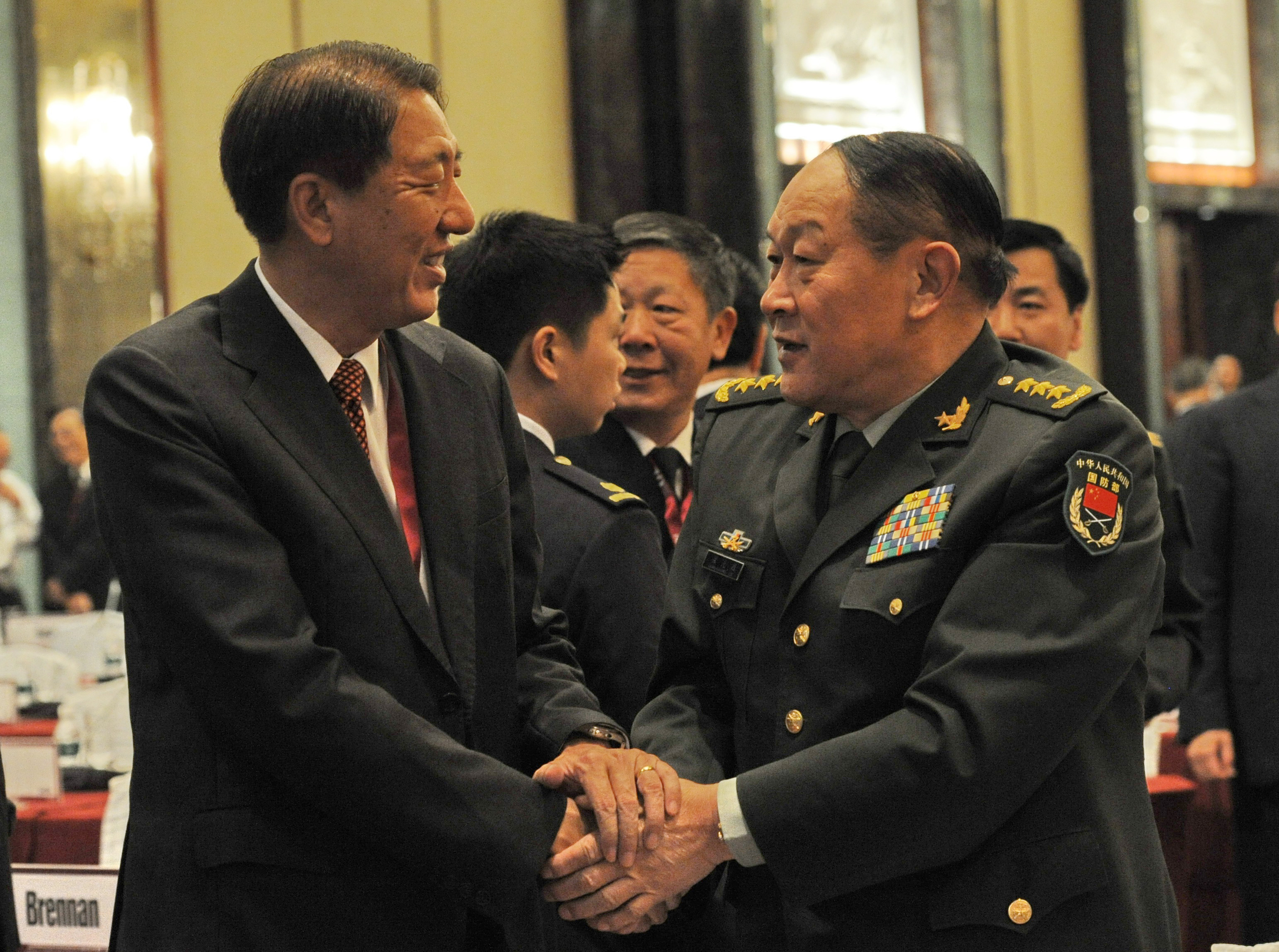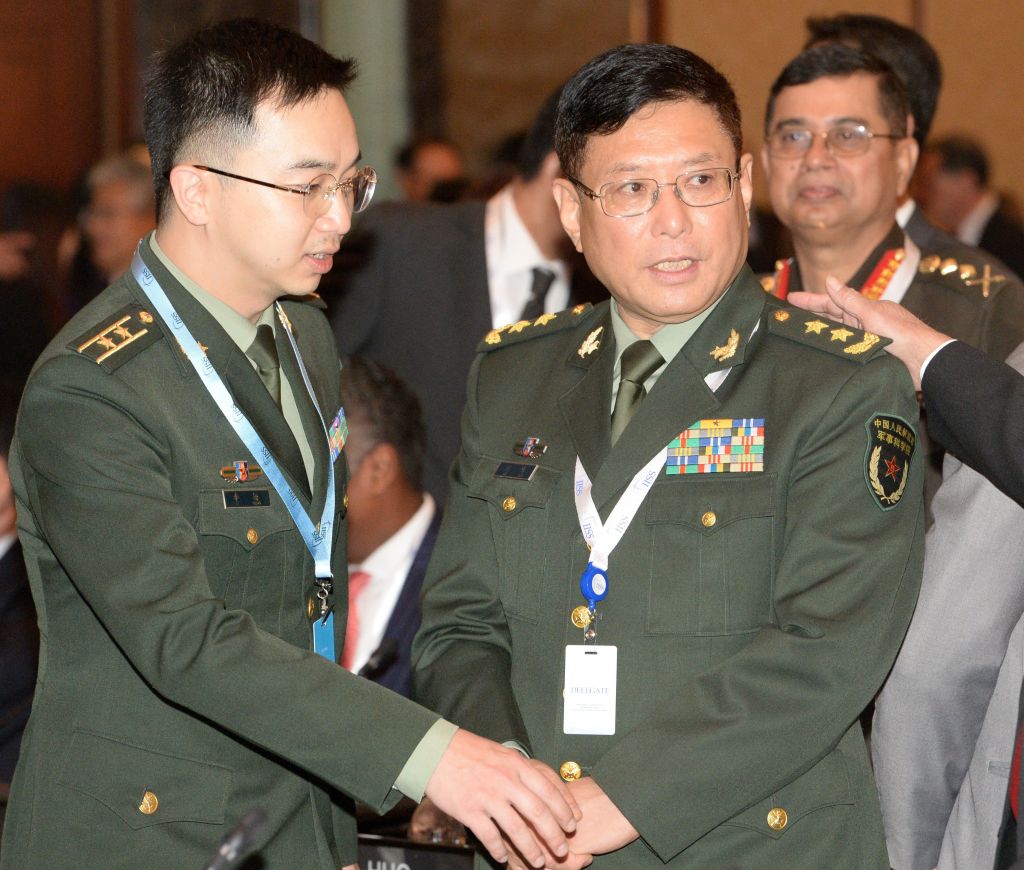The Shangri-La Dialogue is a once-a-year high-powered military summit that often sees high-ranking military officials from all over the world convene in Singapore, at the Shangri-La Hotel in Orange Grove Road.
The three-day event consists of panel sessions helmed by ministers, and senior military officials, as well as break-out groups for further discussion on issues pertinent to Asia-Pacific regional security.
Various countries' delegations have also increasingly used the summit to meet and broker deals or agreements with other countries' officials, so it can be said to be a fairly important part of an Asia-Pacific country's military calendar.
As a matter of fact, this year's summit is attended by defence ministers from Australia, the U.S., Canada, France, Indonesia, Japan, Malaysia, New Zealand and the Philippines, according to The Diplomat. It's also headlined by Australian Prime Minister Malcolm Turnbull, who gave the event's opening remarks.
But we're here to talk about China.
Always a fixture
Now, every year (the Dialogue is now in its 16th), China does send a delegation of military officials to attend and participate in it. In 2011, for instance, it sent its then-defence minister General Liang Guanglie — the most high-ranking military official ever to lead a delegation to the summit.
Here he is shaking hands with our very own DPM Teo Chee Hean:
 Teo Chee hean (L), Singapore's Deputy Prime Minister, minister for home affairs and co-ordinating minister for national security shakes hands with Liang Guanglie (R), Chinese Minister of Defense at the Asia-Pacific security forum in Singapore on June 4, 2011. Defense Secretary Robert Gates on Saturday vowed the US military will maintain a "robust" presence across Asia backed up with new high-tech weaponry to protect allies and safeguard shipping lanes. AFP PHOTO/ROSLAN RAHMAN (Photo credit should read ROSLAN RAHMAN/AFP/Getty Images)
Teo Chee hean (L), Singapore's Deputy Prime Minister, minister for home affairs and co-ordinating minister for national security shakes hands with Liang Guanglie (R), Chinese Minister of Defense at the Asia-Pacific security forum in Singapore on June 4, 2011. Defense Secretary Robert Gates on Saturday vowed the US military will maintain a "robust" presence across Asia backed up with new high-tech weaponry to protect allies and safeguard shipping lanes. AFP PHOTO/ROSLAN RAHMAN (Photo credit should read ROSLAN RAHMAN/AFP/Getty Images)
But, as it turns out, this regal gracing of the forum was not an event that would be repeated — China would never send any of its future ministers, or even anyone from its defence ministry in the years that would follow.
Why, you might wonder? Even people studied in international relations can only make educated guesses at the reasons, but it's possible this is because:
1) At the 2011 edition of the dialogue, U.S. Defence Secretary Robert Gates stressed the importance of, and emphasised that America will maintain a "robust" military presence in the Asia-Pacific region — of course, not something the Chinese enjoy hearing. This became known as the "pivot to Asia": the focus on growing relations with ASEAN and other countries in Asia, a charge led by former U.S. president Barack Obama himself.
2) In several subsequent years, one headlining topic everyone tends to speak out about, and also obsess over, is the South China Sea dispute — for obvious reasons, of course, for folks like Vietnam, the Philippines, Malaysia, Indonesia and Taiwan. And while China is content to send an official to share a carefully-worded toe-the-line safe and friendly-to-all speech, they'd prefer not to have to handle questions in response — especially not hostile-sounding ones about the South China Sea.
This has been happening long before our Terrex chias got stuck
So yes, the point we're trying to make here is, China reduced its presence at the Shangri-La Dialogue over years before our Terrex chias got stuck in Hong Kong on the way home from Taiwan.
As The Diplomat points out in an op-ed piece, its delegation to Singapore was from 2013 to 2016 led by a deputy chief-level officer from the People's Liberation Army.
This year's group is smaller, even, than in previous years', and is led by Lieutenant General He Lei, vice president of the People's Liberation Army's Academy of Military Science. He has no formal government position, but let's see what the South China Morning Post found when they asked Beijing officials why they sent such a "small-time" team to the summit:
"Military sources said the People's Liberation Army had scaled down its presence at the Shangri-La Dialogue to focus on domestic reforms and prepare for a key Communist Party congress later this year.
A spokeswoman for China's foreign ministry rejected suggestions by overseas media that the low-key presence at the forum was due to the diplomatic spat with Singapore at the end of last year."
The diplomatic spat, of course, refers to our Terrex chias once again, by the way.
The article does, in fact, go on to cover quite extensively more reasons why we shouldn't worry at all about this —
1) One military source quoted said this year is the 90th anniversary of the People's Liberation Army's foundation, so everyone's busy with that.
2) There's also a series of ongoing sweeping military reforms happening, chiefly surrounding the need to cut the size of China's military to make it leaner and more efficient.
These were outlined by a Chinese military analyst named Zhou Chenming, who said military reform in China is now "at a critical point", with military officials working to ensure a smooth operational start at the end of the reform process.
3) The next Communist Party congress to elect China's new top leadership is happening this autumn in Beijing, and they're busy preparing for that too.
In fact, a Shangri-La Dialogue senior fellow was quoted saying a group visiting Beijing was informed beforehand that we would be receiving a smaller delegation this year, also for the above-mentioned reasons. They even said they will send a higher-ranking group to the dialogue next year, after their internal reforms are complete.
In conclusion, for anyone who was panicking about this, please chill.
The end.
Top photo by ROSLAN RAHMAN/AFP/Getty Images
If you like what you read, follow us on Facebook and Twitter to get the latest updates.
If you like what you read, follow us on Facebook, Instagram, Twitter and Telegram to get the latest updates.



